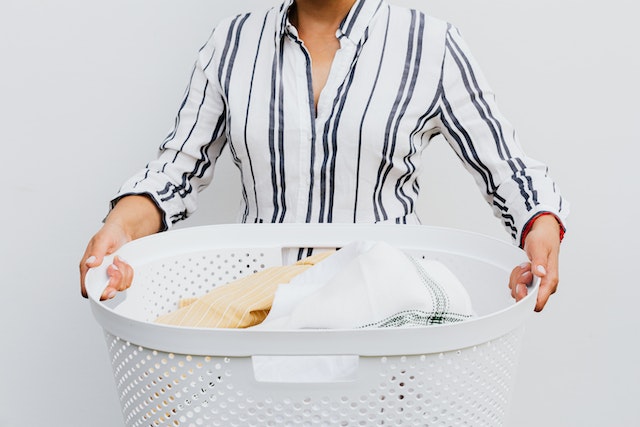How Often Should You Wash Your Sheets?
Sleeping restores the body so we have more energy to spare for our day-to-day activities. Humans spend a lot of time in bed which means sheets and comforters can become a magnet for dirt, sweat and oil.
It’s important to have proper hygiene to remain healthy, which is why regularly changing the sheets is key to avoiding allergies, skin breakouts, and even asthma. Fresh and clean bedding also contributes to better sleep quality.
How Frequently Should You Wash Your Sheets?
For most people, you should change your sheets once a week. If you’re not sleeping in your bed daily, you can extend the washing to every two weeks. For some people, changing sheets should happen more than once a week, particularly if you share a bed with your pets or you're a late-night snacker.
For those afflicted with allergies or asthma, you can check if your symptoms improve after changing your bedding more often.
In the summer months, when you tend to sweat more, it can be good to change sheets more than once a week to avoid excess moisture and smells. Seasonal allergies are also common during spring and summer so it’s recommended to wash and change your sheets often to minimize your symptoms.

Why Should I Wash My Sheets So Often?
Although it may seem like a lot to wash and change your bedding every week, the effort pays off. After just a few days, bed sheets can often gather plenty of dirt, body oil, sweat and dead skin cells. Sheets can also harbor dust mites and other allergens.
They can’t be seen with our eyes but these microscopic creatures are often the source of skin irritation. It can even exacerbate dust allergies if that’s something you already deal with.
Dust mites can exist in dark, humid and warm environments so they’re fairly common in beds. Aside from washing the sheets and cleaning the mattress through regular vacuuming, you can also use high heat in your drier (at least 130℉) to ensure that the dust mites are killed.
You can usually tell if dust mites are present if you’re often sneezing, have itchy skin, and runny nose.
What’s alarming about dust mites is that their reproduction rate is high. Though you may not be allergic to them, it isn’t a good idea to sleep in beddings where they’re abundant. To solve this issue, wash your sheets and change them often.

Since it’s best to wash your sheets once a week, here’s a step-by-step guide on the best procedure for cleaning your bed.
- To start, check the label of your sheets and bedding to see if there are specific care instructions.
- Review the hottest water temperature permitted for the material. Cotton won’t be damaged by hot water while other materials such as polyester can only handle a warm setting.
- If you use a washing machine, make sure to use a gentle detergent.
- For those with sensitive skin, bedsheets can be rinsed again to get rid of any detergent residues.
- You can hang the sheets to dry or tumble dry on low to preserve the material.
Since washing and drying sheets can take some time, many people have reserved bedsheets to rotate. You can replace them with fresh sheets easily while waiting for the other sheets to finish drying or just wait to wash the dirty sheets when you have free time.
When Should I Wash My Bedding?
It isn’t just your sheets that can collect dust mites and sweat. Make sure your blankets and pillows are getting cleaned as well.
You can use this general guideline:
- Pillow cases should be washed once a week.
- Duvet covers can be washed every two weeks to a month.
- Comforters can be used for two to three months before they should be washed.
- Blankets, like comforters, have an extended use of two to three months before being washed.
- Pillows, if they’re washable, can be cleaned once every four to six months.

Don’t forget to note the manufacturer’s care instructions to avoid ruining your bedding. The information written above is for general care but you might have an item that requires specific handling when it comes to washing.
Another recommendation is to find time to clean your mattress at least once every six months. Cleaning helps slow down the wear and tear and prolongs the lifespan of your mattress and bedding. You can also expect your sleep quality to improve, as well as your health condition, particularly for those afflicted with allergies.
Although cleaning can help extend the use of your mattress, it must still be replaced when it reaches six to eight years. This results in obtaining the best sleep quality.
Additional Tips for Washing Sheets
- Sort your sheets from the other items you need to wash. It’s best to separate whites from other colors to prevent bleeding.
- Be careful not to overstuff your washing machine. There must be extra room for the fabric to tumble so the detergent can soak deeply for thorough cleaning.
- Bleach is not recommended for brightening bedsheets since it may damage the fabric.
- If you smell a stale odor after washing your bedsheets, wash them again. This can happen because of mold or mildew. Sometimes, bedsheets are put away when they are still a bit damp. Mildew can also grow if the closet your store your sheets in is particularly humid. It may also be a sign to clean your laundry machines.
Bottom Line
Fresh sheets can improve your health and sleep quality, so washing them often is a practice you should perform regularly. If keeping up with the cleanliness of your home feels overwhelming, you can hire a professional cleaning service. Contact Easy Clean today for all of your cleaning needs!